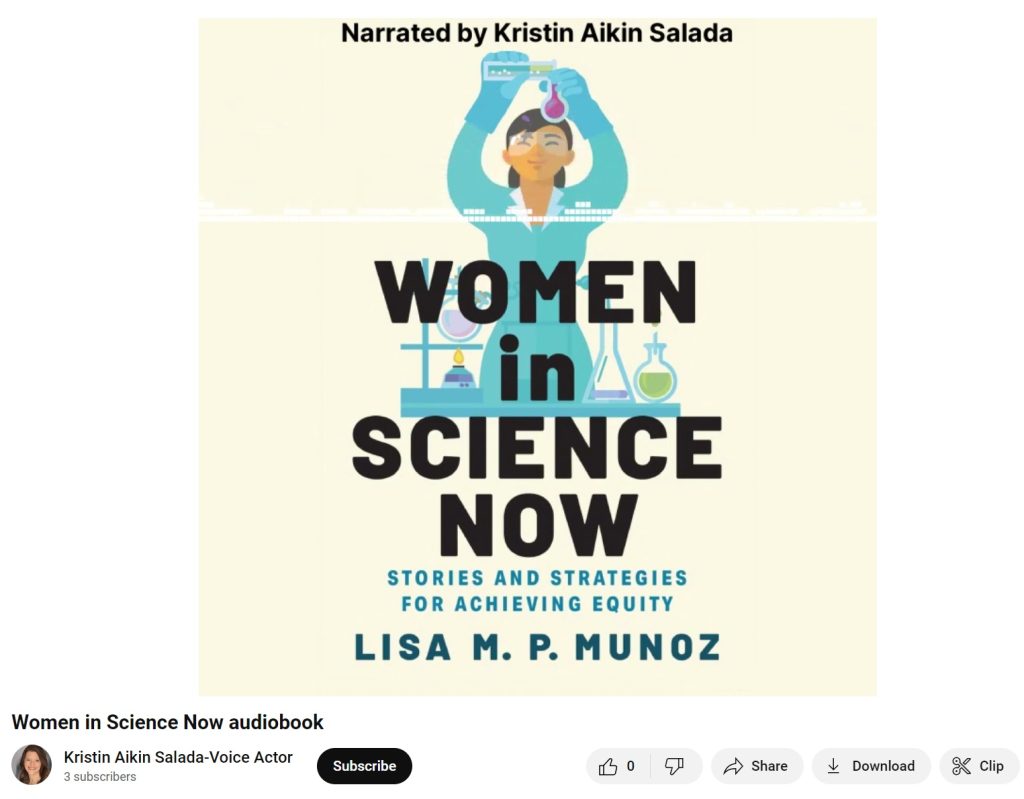This day just keeps getting better! Not only did I have the honor of presenting to a groups of hundreds of federal scientists at the U.S. Geological Service and National Park Service, but I the audio-version of my book was also released.
For me International Women’s Day is one like any other to spend of reflecting on how we can each contribute to the world we want to live in. For me, that means continuing to discuss the importance of equity and inclusion in the sciences, as well as the importance of science communications. My discussion with federal employees today underscored the work still to do in using equity to strengthen the culture of science.
Are you looking for a speaker to inspire and empower those in science with knowledge about representation in STEM, science communications, or equity in the sciences?
One of the most rewarding parts of publishing my book in October has been all the opportunities I have had to give talks on college campuses (e.g. Cornell, Duke, NC State, CU Boulder, Co School of Mines and more!) and for various scientific institutions and societies (e.g. U.S. Department of the Interior/USGS, AWIS, SEG, SANDSWA, SPSP, SfN, and more!). Next up are Caltech, University of Lausanne, University of Hamburg, and Towson. I would love to add more to the roster for the next year!
*If you are interested in hosting me at your institution for an in-person talk (or set of talks/events) or a webinar, please reach out.*
The conversations we have about representation and equity in STEM fields matter, and I feel honored to be facilitating such discussions, which I hope will continue to lead to positive change! I will also be offering my science communications workshop again and would love to bring it to students and scientists at various points in their careers. I have delivered my talks and workshops to various audiences of undergraduate and grad students, postdocs, faculty, and early-career and senior scientists.

International Women’s Day, with News on Audiobook and On Tour with USGS, Others
March 8, 2024 by Lisa M.P. Munoz